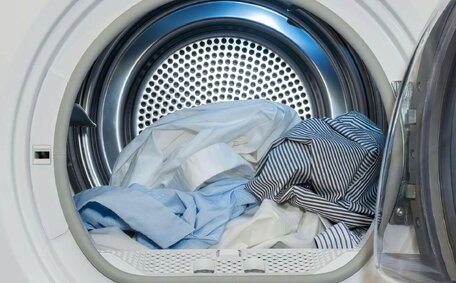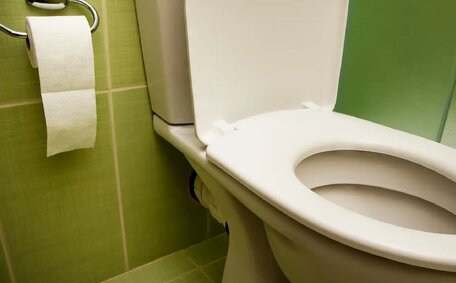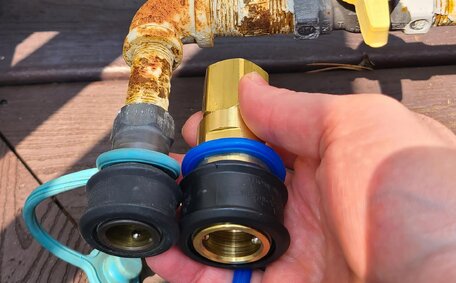Introducing Gas Hot Water Systems
Gas hot water systems are highly favoured in Australian homes for their efficiency. They work by heating water with a gas burner as it flows through a storage tank or on demand in instant systems. The key advantage of gas hot water systems lies in their lower running costs compared to electric systems.
Common types of gas hot water systems include:
- Storage tank systems provide hot water when needed, reheating as necessary.
- Instant or continuous flow systems deliver hot water instantly, supplying a set number of litres per second as soon as the hot tap is activated.
- Hybrid systems combine gas with solar heat pump technology for enhanced energy efficiency.
When choosing the right gas hot water system for your home in Ryde, consider upfront costs, energy efficiency, and flow rates, which relate to the system’s capacity.
Comparing Gas, Electric, Solar and Heat Pump Water Heating
Gas Hot Water
- Gas hot water systems are generally cheaper to operate than solar models, leading to lower energy bills.
- Hot water tanks are typically 75-80% efficient.
- Instant hot water systems heat water on demand, no standby losses
- Burning gas for heating water generates greenhouse gas emissions.
Electric Hot Water
- Electric systems often have higher running costs compared to other hot water solutions.
- Storage tanks suffer heat loss over time
- Electric instant systems are good for minimising your hot water usage
- Can be supplemented with solar heating to reduce energy bills further.
Solar Hot Water
- Solar water systems harness free heat from the sun to warm countless litres per day of water
- Can also be compatible with gas vs electric boosting
- Reduce your energy bills and emissions
- Require roof space and good solar access
Heat Pump Hot Water
- Extract heat from air to warm water with a hot water heat pump compressor
- Achieves high hot water efficiency, more efficient than most models, with lower running costs
- Quiet operation, long lifespan
- Need external installation space
Energy Efficiency and Operating Costs
Gas hot water systems frequently outperform electric models in energy efficiency, aiding in cost savings. Storage gas systems are typically around 75-80% energy efficient, while instant gas systems can be over 90% efficient as they only heat water on demand.
This higher efficiency translates into lower operating costs. On average, a household can spend about $615 annually on gas water heating, in contrast to $790 for an electric system. Instantaneous gas systems can be even cheaper to run at around $300 annually.
However, gas prices in Ryde and other market factors do influence the running costs of your water system over time. Gas prices in NSW increased by 56% from 2015 to 2022. Government rebates for energy-efficient hot water systems can offer extra savings.
Opting for a 5-star rated gas hot water system could save a Ryde household $135 annually, thanks to competitive system pricing. A hot water system can maximise its efficiency even further when integrating gas with solar power or employing efficient heat pump technology.
Upfront System Costs Over Time
The upfront cost of a gas hot water system in Ryde is typically higher than electric or solar systems. A standard gas hot water unit can be installed at a cost of around $1,500. An instantaneous gas system is more expensive at around $2,000.
However, instant hot water systems can lead to savings over time due to their lower running costs. For a storage gas tank system, the higher initial outlay is usually recouped within 5-7 years with energy bill savings. Instant systems may take only 3-4 years to pay off the initial investment.
Other factors like rebates, gas price changes and vs electric hot water systems also affect long term costs. Instant gas systems typically have a 12-year lifespan, while storage systems can last for 15-20 years. Gas hot water systems provide excellent value, especially storage tanks, due to their higher return on investment.
Instantaneous vs Storage Gas Systems
Instantaneous and storage gas hot water units work differently to heat your water. Instant hot systems use gas burners to provide water heat on demand as it flows to taps. Storage tank systems maintain a ready supply of heated water, in contrast to instant systems, which heat water on demand.
Key differences that affect costs in Ryde include:
- Instant systems are more efficient as they only heat water upon demand, offering 5-10% greater energy efficiency with minimal standby losses. However, the maximum flow rates for hot flow water delivery are typically lower.
- Instant systems cost about $2,000 initially, but a shorter payback period of 3-4 years offsets this, due to lower running costs and improved flow rates.
- Storage systems with a tank are less expensive upfront, costing approximately $1,500. Operating costs are cheaper than electric storage but higher than instant gas systems.
- Storage tanks last longer, around 15-20 years. Instant systems average around 12 years before replacement is needed.
- Instant systems work during blackouts. Storage tanks lose temperature over extended outages.
When choosing between gas vs electric hot water systems, households should weigh upfront costs against operating costs, flow rates, and reliability requirements.
Environmental Impacts
Although gas hot water systems are cost-effective to operate, they present certain environmental impacts. The burning of natural gas releases greenhouse gases like carbon dioxide and methane, contributing to climate change.
Gas hot water systems can emit over a tonne of carbon dioxide annually through gas combustion. This is lower than older electric storage heaters but higher than renewable energy options like solar and heat pumps.
However, there are ways to reduce the eco-impact of gas hot water:
- Select a high-efficiency, 5-star energy rated gas hot water system to reduce emissions.
- Opt for an instantaneous gas heater which has lower standby losses and higher efficiency ratings.
- Consider cleaner-burning natural gas LPG alternatives if accessible.
- Install a solar pre-heater to reduce how often the gas burner activates.
Integrating efficient gas hot water heaters with solar technology can achieve lower environmental impact while maintaining cost-effectiveness.
Maintenance and Longevity
Regular maintenance is crucial for the efficiency and longevity of gas hot water systems. Annual servicing by a licenced technician is recommended to keep the system performing optimally.
Technicians will service gas water heater burners, check for leaks and clean filters during routine maintenance. Any worn parts can be proactively replaced.
Regular professional servicing can extend the lifespan of your storage tank to 15-20 years and your instantaneous model to around 12 years. Maintenance extends system lifespan. Replacing seals, anodes and heating elements can further prolong efficient functioning.
Instant gas hot water systems generally need less frequent maintenance compared to other models. But gas systems with a water heat pump and annual servicing have proven reliability and durability over decades of use across Australian households.
Making the Right Choice for Your Home
Consider your household’s specific needs and consumption patterns when choosing a new hot water system. Tank storage gas systems are ideal for larger families with regular, high demand for hot water. Smaller households with intermittent usage can benefit from the cost-effective, on-demand hot water of instantaneous gas systems.
Gas instantaneous systems have higher initial costs but offer quicker payback through energy savings.
Consult with a licensed plumbing expert such as Ryde Plumbing to select an appropriate system. Leveraging years of expertise, we provide valuable guidance on the best hot water system for you, explaining the advantages and drawbacks of various technologies. Our experts can recommend the most suitable, cost-effective option for heating water in your home.
To learn more about the right hot water system for your specific household in Ryde, email Ryde Plumbing today to arrange an obligation-free quote or call us on 1300 349 338.






